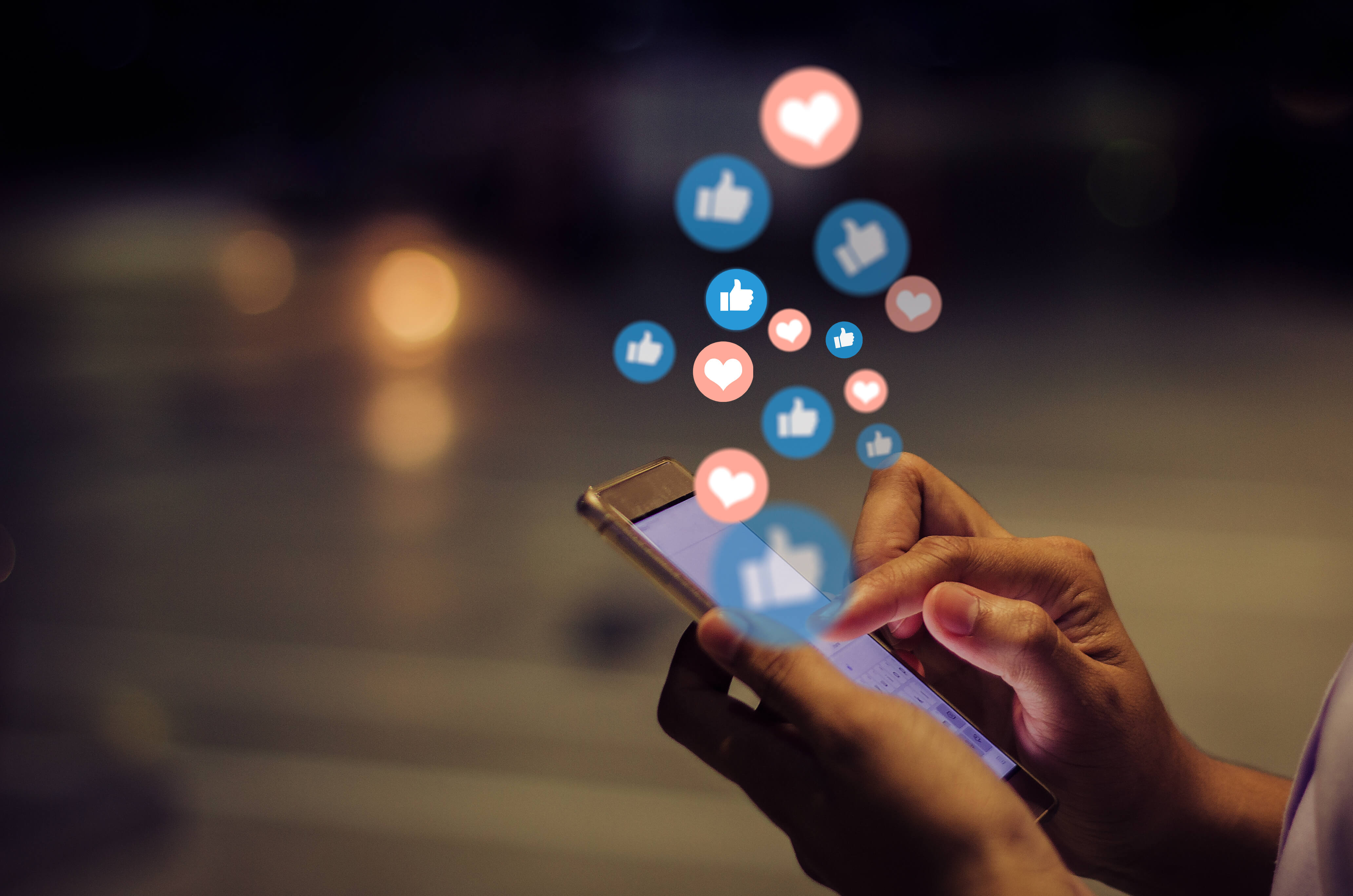The world of communication is moving quickly. This accelerated pace is both good and bad. We can shift information around the globe even more efficiently—but we’re also seeing new technologies and new ways of thinking erupt overnight, far too quickly for anyone to really keep pace with.
We’re in the infancy of social media. Even so, in the couple of decades since the idea first came about, we’ve seen social networks rise and fall, questions made about the role of social media in democracy, and the beginnings of a generation brought up on social media.
The statistics on social media and mental health can make for sobering reading. Let’s look at some now.
Social media and mental health statistics UK
According to research:
- Time spent on social media is increasing, averaging 136 minutes a day.
- 91% of 16-24-year-olds use social media.
- This number decreases as you assess older cohorts, but is still as high as 20% for people aged 65+.
- Younger people say that four out of five major social platforms make their anxieties worse.
- Younger people see the most issues, but 38% of adults think social media is actively harmful.
- FOMO—fear of missing out—is a huge driver of anxiety, but 40% of adults are unfamiliar with the term.
The social media and mental health statistics don’t lie, and they paint a slightly worrying picture. While older people are a little better-equipped to deal with social media, with perhaps a little more cynicism and willingness to question everything they see on a screen, the younger generations brought up with social media from a young age are vulnerable.
Negative impacts of social media
However, multiple studies have found a strong link between heavy social media and an increased risk of depression, anxiety, loneliness, self-harm, and even suicidal thoughts.
Social media may promote negative experiences such as:
- Feelings of inadequacy.
- FOMO.
- Isolation.
- Depression and anxiety.
Signs that social media is impacting mental health
Everyone is different and there is no specific amount of time spent on social media, the frequency you check for updates, or the number of posts you make that indicates your use is becoming unhealthy.
Rather, it has to do with the impact time spent on social media has on your mood and other aspects of your life, along with your motivations for using it.
Here are some of the impacts to look out for in your employees.
- Spending more time on social media than with real world friends.
- Experiencing cyberbullying.
- Being distracted at work.
- Worsening symptoms of anxiety or depression.
Staying positive online
While these statistics on social media and mental health may seem a little worrying, it’s not too difficult to stay positive and use social media properly.
We have a few tips for you here:
Use an app to track time
To ensure you don’t overdo it on social media, you can track time you spend on it with your phone. This is often called digital wellness.
Setting targets for reduction and having goals will help motivate someone to rely less on social media.
Positivity begets positivity
This may sound a little trite, but you really do get out of social media what you put in.
It’s not easy to remain a shining beacon of positivity when there’s so much doom and gloom around but being the change you want to see in the world really helps.
This doesn’t mean forcing a smile and posting pictures of cats every five minutes—insincerity isn’t especially helpful. But reaching out when people are having a hard time, sharing good news, and generally focusing on the good? That’s one way to help bring these statistics into a better light.
Surrounding yourself with good friends works well in real life, and it’s the same online. Adding everyone you see might increase a number, but it doesn’t create many meaningful interactions.
Take a break
Not so easy in the age of COVID-19, but still a vitally important step. Making time for yourself, to see and speak to friends in person, is a great way to make your mental health better in a social media context.
It’s possible, after all, to have too much of even a good thing—so it follows that, if social media exposure can make you anxious, to limit your time spent...
Seek help
If social media is making you truly anxious, stressed, and depressed, it might be time to talk to someone about it. Talking to your GP or a counsellor about the way social media makes you feel is a good first step toward improving your mental health.
If you would like to find out more information on any of the topics mentioned in this article, please contact HA | Wisdom Wellbeing on:
UK: 0844 892 2493
ROI: 01 886 0324




